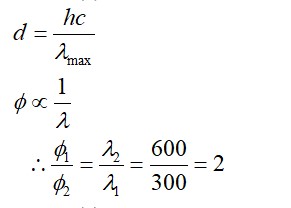10.5. Assertion: Electrode potential is a measure of the tendency of an element to lose electrons in the aqueous solution. So, the reducing property can be correlated in terms ofelectrode potentials (E°) of alkali metals.
Reason: More positive is the electrode potential, higher is the tendency of the element to loose electrons and hence, stronger is the reducing agent.
10.5. Assertion: Electrode potential is a measure of the tendency of an element to lose electrons in the aqueous solution. So, the reducing property can be correlated in terms ofelectrode potentials (E°) of alkali metals.
Reason: More positive is the electrode potential, higher is the tendency of the element to loose electrons and hence, stronger is the reducing agent.
(c) Reason is wrong a statement. More negative is the electrode potential, higher is the tendency of the element to lose electrons and hence, stronger is the reducing agent.
Similar Questions for you
Li+ has the highest hydration enthalpy.
Hence it is most hydrated
Therefore, Correct order of hydrated radii is Cs+ < Rb+ < K+ < Na+ < Li+
Taking an Exam? Selecting a College?
Get authentic answers from experts, students and alumni that you won't find anywhere else.
On Shiksha, get access to
Learn more about...

Chemistry Ncert Solutions Class 11th 2023
View Exam DetailsMost viewed information
SummaryDidn't find the answer you were looking for?
Search from Shiksha's 1 lakh+ Topics
Ask Current Students, Alumni & our Experts
Have a question related to your career & education?
See what others like you are asking & answering






